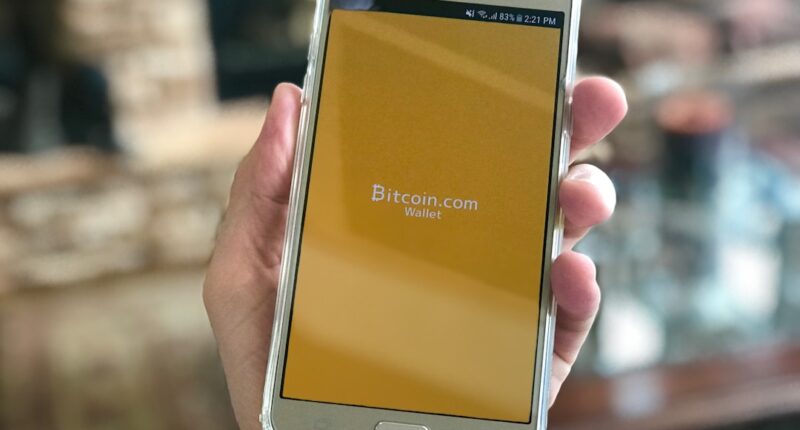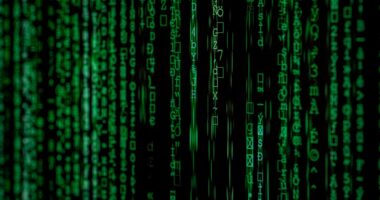NFTs, or non-fungible tokens, are unique digital assets that represent ownership or authenticity of specific digital content, such as artwork, music, videos, or social media posts. Unlike cryptocurrencies, which are fungible and interchangeable, NFTs are distinct and cannot be exchanged on a one-to-one basis. This uniqueness contributes to their value and desirability in the digital marketplace.
The rise of NFTs has created new opportunities for artists, creators, collectors, and investors. Artists can now monetize their digital work in novel ways, while collectors and investors seek exclusive digital content. The potential for significant returns on investment has attracted attention from traditional investors and speculators.
NFTs have the capacity to transform the way digital content is bought, sold, and owned, providing a new level of authenticity and ownership in the digital realm. As the NFT market expands, it is crucial for participants to understand the fundamentals of NFTs and how to navigate this emerging landscape. The growing NFT market presents opportunities for both creators and collectors.
However, it is essential for interested parties to stay informed and educated about this developing asset class to effectively participate in and benefit from the NFT ecosystem.
Key Takeaways
- NFTs are unique digital assets that represent ownership of a specific item or piece of content, and they are part of a growing digital gold rush.
- When choosing the right NFT marketplace, consider factors such as fees, user base, and the platform’s reputation for security and authenticity.
- Creating and minting your NFT involves choosing the right file format, setting the edition size, and using a compatible wallet for the blockchain you are using.
- Promoting and selling your NFT requires building a strong online presence, leveraging social media, and engaging with potential buyers through auctions or direct sales.
- Navigating legal and copyright considerations is crucial when dealing with NFTs, as it involves understanding intellectual property rights and potential legal implications.
- Managing your NFT portfolio involves tracking the performance of your assets, staying organized, and considering factors such as storage and security.
- Staying informed with NFT news and updates is essential for understanding market trends, new opportunities, and potential regulatory changes.
Choosing the Right NFT Marketplace
Popular NFT Marketplaces
Some popular NFT marketplaces include OpenSea, Rarible, Foundation, and NBA Top Shot, each offering a distinct user experience and focus. OpenSea is one of the largest and most well-known NFT marketplaces, offering a wide range of digital assets and a user-friendly interface. Rarible is known for its decentralized marketplace and unique governance token, while Foundation focuses on supporting emerging artists and creators.
Key Factors to Consider
When choosing an NFT marketplace, consider factors such as user interface, fees, community engagement, and the types of digital assets available. It’s also important to consider the marketplace’s reputation and security measures to ensure a safe and reliable experience.
Find the Right Platform for Your NFT Needs
By carefully evaluating different marketplaces and their offerings, you can find the right platform to buy, sell, or mint NFTs and participate in the digital gold rush.
Creating and Minting Your NFT

For artists and creators looking to enter the world of NFTs, creating and minting your own digital assets is an exciting opportunity to showcase your work and potentially generate income. Minting an NFT involves turning a digital file into a unique token on a blockchain, which can then be bought, sold, or traded on various marketplaces. There are several steps involved in creating and minting an NFT, from choosing the right platform to understanding the technical aspects of blockchain technology.
One of the first steps in creating an NFT is choosing the right platform for minting your digital asset. Platforms such as OpenSea, Rarible, and Mintable offer user-friendly tools for minting NFTs, allowing creators to upload their digital files, add metadata and unlockable content, and set royalties for future sales. It’s important to carefully review the minting process on each platform to ensure that your NFT is created and represented accurately.
In addition to choosing a minting platform, creators should also consider the technical aspects of blockchain technology, such as gas fees and network congestion. Minting an NFT involves paying a gas fee to process the transaction on the blockchain, which can vary depending on network activity. By staying informed about blockchain technology and current gas fees, creators can optimize their minting process and minimize costs.
With the right platform and technical knowledge, creators can successfully create and mint their own NFTs and participate in the digital gold rush.
Promoting and Selling Your NFT
Once you’ve created and minted your NFT, the next step is promoting and selling it to potential buyers in the digital marketplace. Promoting your NFT involves building awareness and generating interest in your digital asset through marketing and outreach efforts. There are several strategies for promoting and selling your NFT, from leveraging social media platforms to collaborating with influencers and engaging with the NFT community.
Social media platforms such as Twitter, Instagram, and TikTok are valuable tools for promoting your NFT to a wide audience. By sharing high-quality images or videos of your digital asset, providing behind-the-scenes insights into your creative process, and engaging with followers, you can build excitement and anticipation for your NFT release. Utilizing hashtags, tagging relevant accounts, and participating in online conversations can also help increase visibility for your NFT.
In addition to social media promotion, collaborating with influencers or participating in NFT communities can help expand your reach and connect with potential buyers. Influencers with a strong following in the NFT space can help promote your digital asset to their audience, while engaging with NFT communities on platforms such as Discord or Clubhouse can provide valuable networking opportunities. By actively participating in these communities and building relationships with other creators and collectors, you can increase exposure for your NFT and attract potential buyers.
Navigating Legal and Copyright Considerations
As the popularity of NFTs continues to grow, it’s important for creators and collectors to navigate legal and copyright considerations when buying, selling, or minting digital assets. NFTs raise unique legal challenges related to intellectual property rights, ownership rights, licensing agreements, and resale royalties. Understanding these considerations is crucial for protecting your rights as a creator or ensuring that you are purchasing authentic and legally compliant NFTs.
One key legal consideration for creators is ensuring that they have the proper rights to mint and sell their digital assets as NFTs. This may involve obtaining permission from copyright holders or ensuring that their work does not infringe on existing intellectual property rights. Creators should also consider whether they want to retain any rights or impose restrictions on how their NFTs can be used or resold by buyers.
For collectors and buyers, it’s important to verify the authenticity and ownership of NFTs before making a purchase. Due diligence should be conducted to confirm that the seller has the legal right to sell the NFT and that it does not infringe on any existing copyrights or intellectual property rights. Additionally, buyers should be aware of any licensing agreements or resale royalties associated with the NFT they are purchasing.
Managing Your NFT Portfolio

Tracking Performance Metrics
One key aspect of managing your NFT portfolio is tracking the performance of your digital assets over time. This may involve monitoring sales data, tracking price fluctuations, and evaluating market demand for specific types of NFTs. By staying informed about market trends and analyzing historical data, you can make more informed decisions about when to buy or sell NFTs in your portfolio.
Evaluating Investment Opportunities
In addition to tracking performance metrics, managing your NFT portfolio also involves evaluating potential investment opportunities in the digital marketplace. This may include researching emerging artists or creators, identifying undervalued assets, or exploring new trends in the NFT space. By staying informed about new developments and opportunities in the market, you can identify potential investments that align with your investment goals.
Optimizing Your Investment Strategy
By actively managing your NFT portfolio, you can optimize your investment strategy and maximize the value of your digital assets. This involves making informed decisions about buying or selling NFTs, diversifying your portfolio, and staying up-to-date with market trends and developments. With effective portfolio management, you can achieve your investment goals and succeed in the digital marketplace.
Staying Informed with NFT News and Updates
As the world of NFTs continues to evolve at a rapid pace, staying informed about news and updates in the digital space is crucial for navigating this dynamic marketplace. Staying informed about NFT news involves keeping up with industry developments, regulatory changes, market trends, new platform features, and emerging opportunities in the digital space. By staying informed about these developments, you can make more informed decisions about buying, selling, or minting NFTs.
One way to stay informed about NFT news is by following industry publications, blogs, podcasts, and social media accounts that cover developments in the digital space. These sources often provide valuable insights into market trends, new platform features, upcoming releases from artists or creators, regulatory changes that may impact the industry. In addition to following industry news sources, participating in online communities such as Discord servers or forums dedicated to NFTs can provide valuable insights into market trends and emerging opportunities in the digital space.
Engaging with other creators, collectors, investors can provide valuable networking opportunities while staying informed about new developments in the market. In conclusion, understanding how to navigate the world of NFTs involves staying informed about industry developments while carefully considering legal considerations when buying or selling digital assets. By choosing the right marketplace for buying or minting NFTs while actively managing your portfolio can help optimize your investment strategy in this dynamic marketplace.
FAQs
What is NFT?
NFT stands for non-fungible token, which is a digital asset that represents ownership or proof of authenticity of a unique item or piece of content using blockchain technology.
How do I start with NFT?
To start with NFT, you will need to create a digital wallet, choose a blockchain platform, create or purchase digital art or content, and then mint it as an NFT using a marketplace or platform that supports NFT creation.
What are the popular blockchain platforms for NFTs?
Popular blockchain platforms for NFTs include Ethereum, Binance Smart Chain, Flow by Dapper Labs, and Tezos. Each platform has its own NFT standards and marketplaces.
What kind of digital content can be turned into NFTs?
Digital art, music, videos, virtual real estate, collectibles, and even tweets or memes can be turned into NFTs. Essentially, any digital content that can be tokenized and owned can become an NFT.
How do NFT creators make money?
NFT creators can make money by selling their NFTs on marketplaces, earning royalties on secondary sales, and by building a community around their work through social media and other platforms.
What are the risks of getting involved in NFTs?
Some of the risks of getting involved in NFTs include market volatility, potential for copyright infringement, high transaction fees on some blockchain platforms, and the environmental impact of blockchain technology. It’s important to do thorough research and understand the risks before diving into the NFT space.





